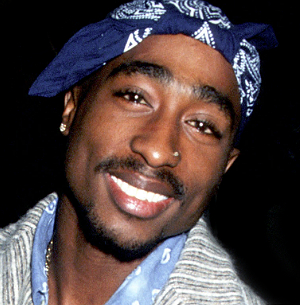On His 40th Birthday, A Remembrance of Tupac Shakur's Film Career
 If not for his untimely death at the age of 25, Tupac Shakur would have turned 40 today. The West Coast rapper had already reached legendary status in the hip-hop world before his tragic (and still unsolved) murder in 1996 after just five living years in the game, during which time he'd released five studio albums and established himself as one of the most fascinatingly enigmatic, troubled, and complex figures of his generation. But he'd also demonstrated talent and depth in six feature film roles. On his 40th birthday, revisit his brief but memorable film work.
If not for his untimely death at the age of 25, Tupac Shakur would have turned 40 today. The West Coast rapper had already reached legendary status in the hip-hop world before his tragic (and still unsolved) murder in 1996 after just five living years in the game, during which time he'd released five studio albums and established himself as one of the most fascinatingly enigmatic, troubled, and complex figures of his generation. But he'd also demonstrated talent and depth in six feature film roles. On his 40th birthday, revisit his brief but memorable film work.
Juice (1992)
A few months after releasing his debut album, 1991's 2Pacalypse Now, a 21-year-old Shakur made his first star turn in Ernest Dickerson's urban drama Juice. Shakur played Bishop, the leader of a group of Harlem teens who seek respect through crime, with tragic consequences. Watch him and Omar Epps (as Q) come to blows over pride, respect, and the lengths they're willing to go to in an early scene from the film, and weep at the thought of the remake in the works with Soulja Boy cast in the Bishop role.
Poetic Justice (1993)
Talk about a surprise move: After playing the charismatic, volatile Bishop in Juice, Shakur did a 180 by taking on the role of a nice-guy mailman in John Singleton's Poetic Justice. Earlier that year, he'd released his second album, Strictly 4 My N.I.G.G.A.Z., which included thoughtful tracks like "Keep Ya Head Up" and its non-album B-side, "I Wonder If Heaven Got a Ghetto," marking a sensitive moment in his career. Watch below as Shakur's postal worker Lucky and Janet Jackson's Justice bicker on the road to love.
Above the Rim (1994)
Shakur's turn as a hood boss in 1994's Above the Rim came in a period of legal and personal turbulence, echoing his turn toward the thug life mantra he adopted. But as Birdie, a local thug who pressures Duane Martin's promising hoops player into joining the dark side, Shakur was charismatic as ever and, in his character's best scenes, revealed the pain of abandonment that led to Birdie's life of crime (2:35).
Pages: 1 2
